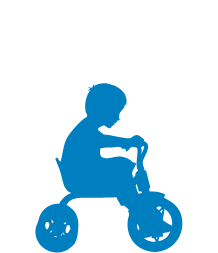UTIs and kidney reflux, explained
About 20-50% of children who have symptomatic recurrent UTIs are diagnosed with Vesicoureteral Reflux1
Urinary tract infections (UTIs) and kidney reflux, also known as vesicoureteral reflux (VUR) are known to be associated. If your child has frequent UTIs with fever (which your doctor may call “febrile UTIs or fUTIs”), VUR may be involved.
Among children with first-time febrile UTI, about 40% have VUR.1
How do I know if my child has a UTI?
Signs of UTIs include:
- Foul smelling or cloudy urine
- Burning or pain when urinating
- Frequent and urgent urination
- Headache
- Fever
- Stomachache
- Vomiting
- Backache
- Side pain
- Irritability
Infants with infection may not show these signs. Instead, they may have diarrhea, poor feeding, fever and increased irritability. If there is any question, call your healthcare provider and have your child’s urine checked. Children can quickly become very sick.
What should I look for?
A UTI can be in either the bladder or the kidney. A UTI in the bladder is called “cystitis”. Children who have VUR typically have kidney infections because VUR allows bacteria that may be in the bladder to travel up to the kidney.
So how do you know if it’s a kidney infection?
Most likely your child will
- Be irritable
- Have a high fever
- Not want to eat
- Vomit
- Experience back pain
If your child has any of these symptoms, you should see your doctor right away. Once a urine test has confirmed the UTI, you may want to ask your doctor if your child could have urinary reflux and seek out a paediatric urologist for help.














